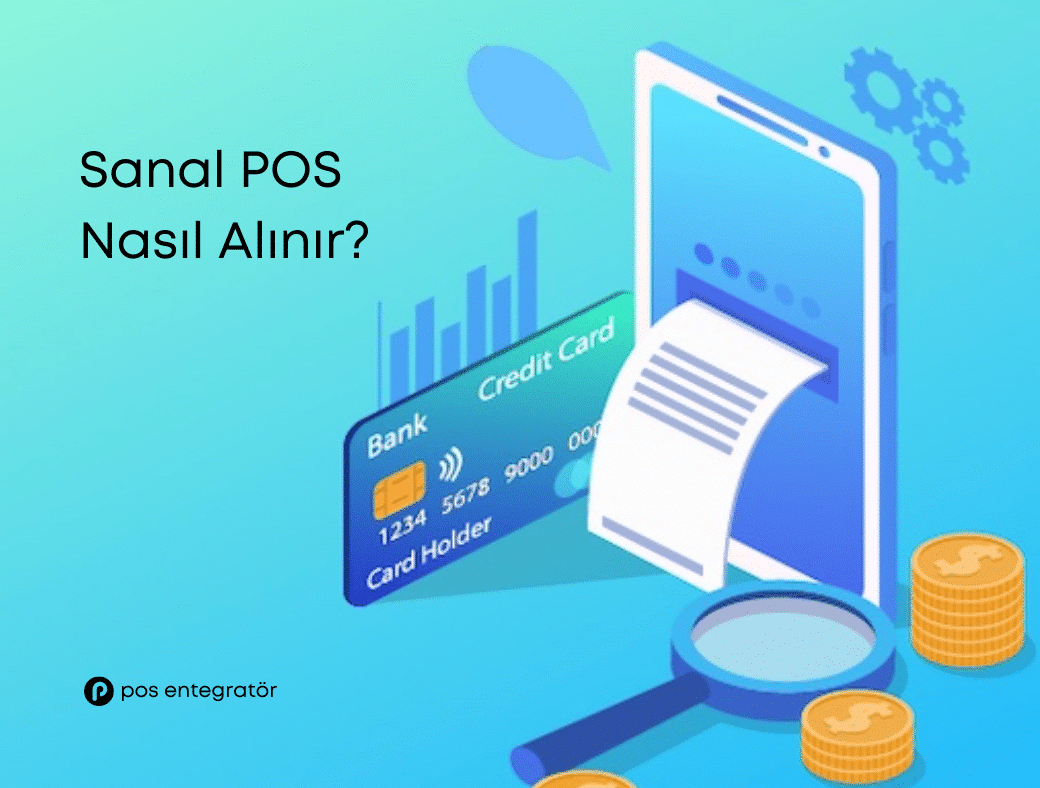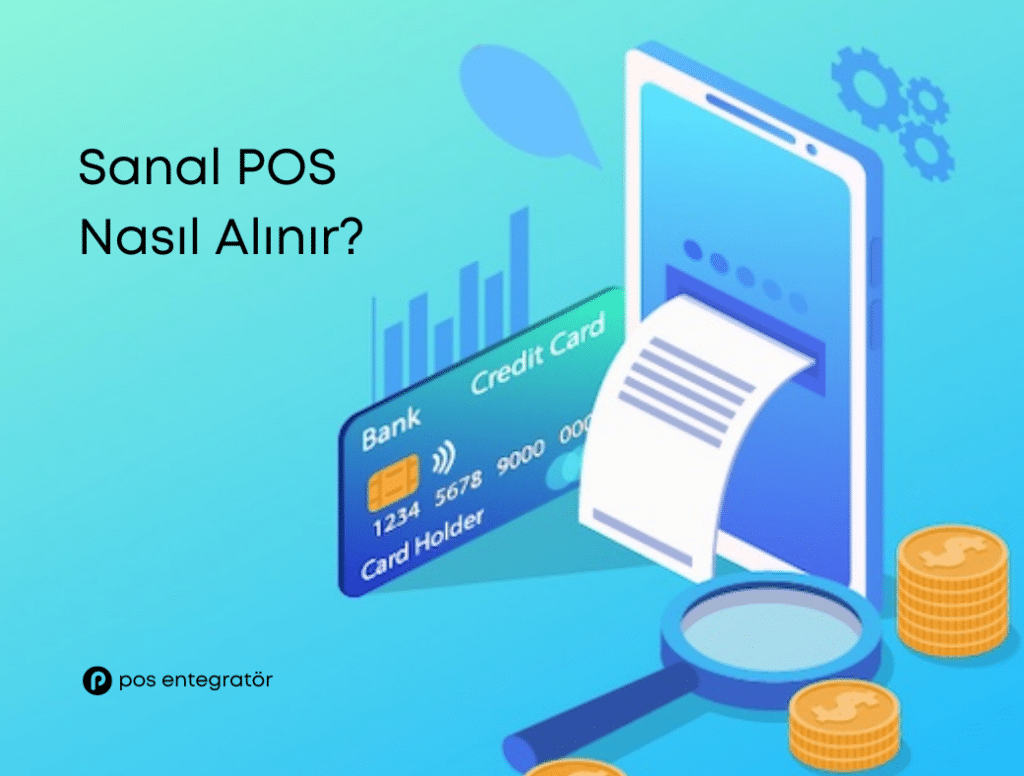Virtual POS Setup and Selection

Content
Virtual POS Virtual POS is a payment system solution that allows customers of an e-commerce business to pay online with their credit cards. In Turkey, virtual POS is a fairly easy and common process. In this guide, we will explain how to get a virtual POS in Turkey and what the application requirements are.
What is Virtual POS?
Virtual POSis a payment method used for online transactions. An e-commerce business is an e-commerce credit card or debit carduses a virtual POS integration to enable them to pay with payment instruments such as credit cards. The virtual POS securely processes the customer's card details, enabling the payment to be made and finalized.
How Virtual POS Works?
Virtual POS is a plugin available on the business's website.
Virtual pos payment steps can be listed as follows;
- During the payment process, the customer enters their credit card details.
- This information is encrypted and securely processed by the virtual POS. ,
- When the transaction is successful, the customer receives payment confirmation and the business receives the payment amount.
Virtual POSis a very common method for online payment transactions and many banks provide this service.
Virtual POS integrationIt facilitates online payment transactions of businesses and speeds up the process of customers making payments. However, security and accuracy issues should also be considered when setting up a virtual POS integration. The business should take all necessary measures to store customer information securely and implement strict security protocols to prevent the theft or misuse of customers' payment information.
As a result, virtual POS integrationis a payment method that facilitates online payment transactions of businesses and speeds up the payment process of customers.
What are the Conditions for Getting Virtual POS?
To get a virtual POS in Turkey, you need to contract with a bank or payment service provider. Depending on the needs of your business virtual POS There are many different banks and payment service providers offering packages. You can follow the steps below to select and apply for one of them:
Step 1: Select a bank or payment service provider and select virtual POS that you would like to receive the service.
Step 2: On the website of the bank or payment service provider virtual POS fill in the application form. In this form, you will need to provide details of your business and payment methods.
Step 3: Once your application has been approved, the bank or payment service provider will send you virtual POS will send the technical documents required for the service. This documents, You will need to give it to your software developer who will handle payment processing on your e-commerce site.
Step 4: After your software developer completes the virtual POS integration, you can start using your virtual POS service.

What are the Virtual POS Application Requirements?
To get a virtual POS in Turkey, you must meet certain conditions. These requirements differ from bank to bank and payment service provider to payment service provider. In general, however, the virtual POS application requirements include the following:
- You must be a business established in Turkey.
- You must be a taxpayer.
- Your signature circular, A copy of the identity card and partnership agreement, if any, are required.
- You must have legal authorization for your products/services.
- Bank or meet the financial conditions set by the payment service provider.
- You do not run a high-risk activity in your business (e.g. gambling, betting, etc.), virtual POS you can get service.
Virtual POS Commission Rates - Banks and Payment Institutions
Virtual POS commission rates In Turkey, it varies across banks and payment institutions. Different banks and payment institutions generally offer varying commission and fee structures depending on the volume of transactions, the type of transaction and the customer's relationship with the business.
Iyzico: %2.49 + 0.25 TL per successful transaction.
Paratika: Paratika Virtual POS works with an average commission rate starting from %0.69 and an average commission rate of %2.5.
PayTR: Does not charge any Virtual POS fee under the name of start-up, integration fee or monthly, annual fee, per transaction fee or inefficiency fee PayTRprovides services with favorable commission rates determined according to the business model and sales volume.
Param: Commission rate: Param Business users: %0.59
Business Bank: Annual fee for İşbank virtual POS service BITT including 4.500 TL a fee is charged.
Garanti BBVA Virtual POS

Garanti BBVA virtual POS software has been used by Garanti member merchants since 1998.
Garanti BBVA Virtual POS commission rates are not fixed and may change over time. You can find out the commission rates from our nearest branches. Garanti BBVA After the authorization process, Virtual POS deducts the collection amount from the customer's credit card or debit card limit and transfers it to the merchant's account.
In order to use Garanti BBVA Virtual Pos, an application must first be made as in every organization.
You can obtain the current version of the required documents from the bank's official website.
To access the help document where we explain the Garanti BBVA Virtual POS setup stages in detail Click here.
Kuveyt Turk Virtual POS

With Kuveyt Türk Free Pos, payments can be made via card in your e-commerce site and online stores.ree POS (Virtual POS) supports the installment option. After the installment is made, you can make installments to Kuveyt Türk Credit Cards. Your customers can easily perform their transactions with all domestic and international credit cards.
What are Kuveyt Türk Free Pos (Virtual Pos) Application Documents?
- Signature Circular
- Institution Registry Certificate
- Tax Certificate
- Website Address
- Common IDs and Mail Addresses
To reach the help document where we explain Kuveyt Türk Virtual POS installation stages in detail Click here.
Is Virtual POS Safe?
In order for Virtual POS to be integrated into any website, banks and payment institutions require security measures. Virtual POS installation is not allowed until all security measures are in place. Virtual POS credit card paymentsfrom other payments more than a does not pose a risk. It is very important that you, as the end user, make sure that your computer is secure.
Why Using Virtual POS is Advantageous?
If you own an e-commerce site and use Virtual POS, you have many advantages as a business. If we talk about these
- Used with security certificates and security infrastructures provided by banks virtual POS payment transactions take place safely and quickly. In this way, you offer a better customer experience.
- Made online virtual POS operations 7/24 takes place. In this way, you can receive payments around the clock wherever there is internet access.
- You can report and track all details and information about your orders.
For detailed information about Virtual Pos Integrations Click here.
How to Ensure Virtual POS Security?
Security in virtual POS payments is ensured by various measures and protocols.

SSL Certificateis one of the most prominent of these protocols. Websites used in Virtual P OS operations, SSL encryption. This encryption method encrypts the communication between the customer and the website that performs the transaction, preventing the information from falling into the hands of third parties.
What is an SSL Certificate?
SSL (Secure Sockets Layer)is an encryption protocol that secures data communication over the internet. SSL certificate is a digital certificate that verifies that a website has established a secure connection using the SSL protocol.
SSL certificate is used to verify the owner and server of the website. This certificate is issued by a third-party certificate authority (Certificate Authority - CA) is issued by When a website owner wants to obtain an SSL certificate, CAand goes through the identity verification process. CAafter verifying that you are indeed the owner of the website SSL certificate.
3D Secure, as we all know. 3D payment feature is one of the other security measures.3D Secure is one of the "Verified by Visa" and Mastercard by "SecureCode" is a security protocol. This protocol allows users to verify their card details when shopping online. The user has to enter a password or verification code at checkout, thus preventing unauthorized use of card details.











